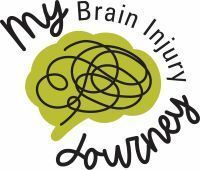
National Brain Injury Awareness Month serves as a poignant reminder of the millions of lives impacted by stroke and Traumatic Brain Injury (TBI), making it the second most prevalent injury and disability in the United States.
Falls and assaults stand as prominent contributors to TBIs, with the latter revealing a harrowing intersection: domestic violence. In the shadows of intimate relationships, where trust is shattered and vulnerability exploited, the ramifications of abuse extend far beyond the physical realm.
Injuries to the face, head, and neck serve as grim reminders of the trauma endured, yet the true extent of the damage often lies concealed beneath the surface. Contrary to popular belief, brain injuries need not be visible to leave a lasting impact. The insidious nature of TBIs becomes apparent as symptoms manifest in diverse forms, from headaches and memory loss to mood swings and cognitive impairments.
Strangulation, in particular, emerges as a silent yet potent threat, robbing survivors of oxygen and inflicting damage that may not surface for years to come. As survivors navigate the labyrinth of trauma, the realization of a TBI may dawn long after the assault, with symptoms emerging five to ten years later.
As advocates and allies, it is incumbent upon us to illuminate the link between domestic violence, strangulation, and brain injuries. Education emerges as our most potent weapon, empowering survivors to recognize the signs and seek support. Prevention, too, plays a pivotal role as we strive to dismantle the systems that perpetuate violence and create safe spaces for healing and recovery.
This March, let us stand united in our commitment to unveil the unseen, addressing the silent epidemic of brain injuries. Together, we can cultivate a culture of compassion, understanding, and resilience, empowering survivors to reclaim their narratives and forge a path toward healing.
This year’s theme for Brain Injury Awareness Month is #MoreThanMyBrainInjury. Many people with disabilities have their lives defined for them. The More Than My Brain Injury campaign seeks to give individuals a chance to overcome those definitions, allowing them to tell their own stories and change the narrative of their lives. Click here to access campaign materials.
Go Blue for Brain Injury Awareness Month
During Brain Injury Awareness Month this March, you can Go Blue! for Brain Injury and gather your coworkers and choose a day – or the entire month – for your organization to raise money while sharing information and experiences about brain injury. Click here for more information on how to participate.
Resources:
Brain Injury Association of New York State
The Brain Injury Association of New York State (BIANYS) has developed resources for education, rehabilitation, community re-entry, accessibility, and more. Click here to view all available resources from the Brain Injury Association of New York.
BIANYS also operates the Family Helpline, a toll-free information and resource clearinghouse available Monday - Friday, from 8:00 AM to 4:00 PM EDT, with a voicemail system for after-hours messages. Whether you are seeking information on traumatic brain injury, looking for resources on rehabilitation, or just trying to find your way, the Family Helpline is there to help!
BIANYS's knowledgeable staff maintains an extensive directory of services across the State. Call 1-800-444-6443 or send them a message. They have resources for individuals with brain injury, family members, professionals, schools, or other interested parties.
New York State Coalition Against Domestic Violence
NYSCADV, in collaboration with BIANYS, presented a series of regional trainings and webinars on "Domestic Violence & Traumatic Brain Injuries, Understanding the Intersections." This recorded webinar provides advocates with an introduction to tools and strategies to help them navigate the intersections of domestic violence and brain injury with the survivors they work with. Participants are provided with:
- An overview and identification of domestic violence-related brain injury
- Strategies for working with individuals with cognitive deficits
- Community resources for individuals with brain injury
Click here to access the recorded webinar and additional materials.
NYS Office for the Prevention of Domestic Violence
The NYS Office for the Prevention of Domestic Violence has developed resources for Brain Injury and Domestic Violence Service Providers, including screening tools, safety planning guides, victims in a shelter, and information on The Intersections of Brain Injury and Domestic Violence.
New York State Department of Health
The New York State Department of Health has resources available, including background information on types of brain injuries, prevention, medical care, statistical information on the incidences of traumatic brain injury in New York State, including by county, and much more.
Domestic Violence-related Brain Injury Resources:
Invisible Injuries: Brain Injuries Caused by Domestic Violence
The Ohio Domestic Violence Network: Center on Partner-Inflicted Brain Injury
Centers for Disease Control and Prevention: Intimate Partner Violence
For Providers: Understanding Domestic Violence as a Cause of TBI
For Providers: It Is Our Responsibility to Recognize Brain Injuries and Intimate Partner Violence in the Women We Serve


